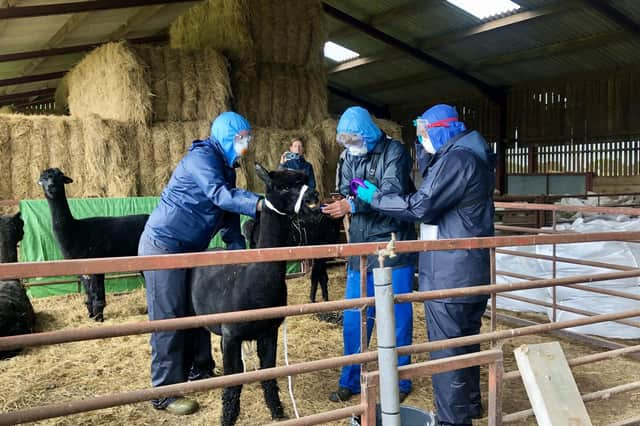Geronimo killed: Alpaca "euthanised" after testing positive for bovine tuberculosis


In a statement, Defra said Geronimo was moved from the farm in Wickwar, Gloucestershire, on Tuesday and “euthanised” by staff from the Animal and Plant Health Agency (APHA) as a “necessary measure to control the spread of bovine tuberculosis (bTB)”.
Geronimo was at the centre of a legal battle with the government after the Department of Food, Environment and Rursal Affairs (defra) ordered for him to be euthanised.
Advertisement
Hide AdAdvertisement
Hide AdDespite the alpaca testing positive for bovine tuberculosis twice, the owner Helen Macdonald believes are false positives.
Following news of the animal’s death, the Prime Minister’s official spokesman said: “Our sympathies are with Ms Macdonald and any others that are affected by this terrible disease.”
Chief veterinary officer Christine Middlemiss said: “No one wants to have to cull infected animals if it can be avoided, but we need to follow the scientific evidence and cull animals that have tested positive for bTB to minimise spread of this insidious disease and ultimately eradicate the biggest threat to animal health in this country.
“Not only is this essential to protect the livelihoods of our farming industry and rural communities, but it is also necessary avoid more TB cases in humans.”
Defra said a post-mortem examination will now be carried out by veterinary pathologists from the APHA, followed by a bacteriological culture of selected tissue samples, which can take up to three months to process.
The news comes two days before the destruction warrant ends on September 4.
A message from the Editor:
Thank you for reading this article. We're more reliant on your support than ever as the shift in consumer habits brought about by Coronavirus impacts our advertisers.
If you haven't already, please consider supporting our trusted, fact-checked journalism by taking out a digital subscription.
Comments
Want to join the conversation? Please or to comment on this article.
